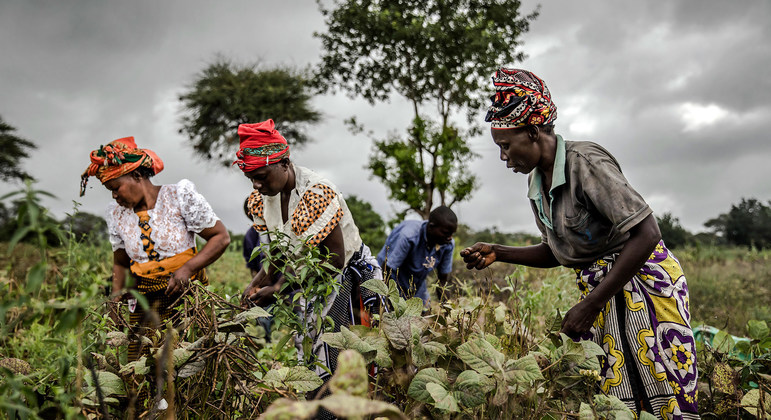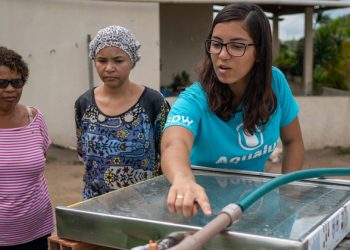10:30
Hunger and the pandemic
Conflict and climate change remain the biggest drivers of hunger worldwide but COVID-19 is exacerbating the crisis, with tens of millions at risk of falling into extreme poverty.
“Before COVID-19, we were already seeing a rise in hunger, after decades of having hunger on the run”, World Food Programme (WFP) deputy chief, Valeria Guarnieri, told UN News in September. “What we’re seeing is that that hunger is being taken to new levels. On the one hand, food prices are going go up and, at the same time, people are feeling the hit of the socio-economic crisis.”
On Tuesday, several UN agencies (FAO, the International Labour Organization (ILO), International Fund for Agricultural Development (IFAD), and World Health Organization), warned that the pandemic has not only led to a dramatic loss of human life, but also constitutes an unprecedented challenge to public health, food systems and employment.
Solidarity for the most vulnerable
The statement called for more solidarity and support, especially for the most vulnerable, and particularly in the developing world and, since lockdowns and other measures have come into effect, a host of initiatives have sprung up to help communities to adapt.
Back in May, we reported on actions that several Latin American cities have taken to ensure that food systems continue to function. In Quito, Ecuador, for example, authorities are using municipal buses as mobile food hubs, and have also partnered with food banks, and mapped vulnerable areas, to make sure the food is distributed effectively. In Lima, Peru, food are being monitored to counter speculation and price gouging on the black market, and a mobile wholesale market is distributing food to various districts of the metropolitan area. And, in Montevideo, Uruguay, citizens and organizations returning to “ollas populares”; a traditional model of home deliveries of fruit, vegetable and other foodstuffs, some directly from producers, with special attention paid to the needs of vulnerable people.
And in August, we looked at one of the ways that digital technology is helping market traders in Uganda survive, despite travel restrictions.
After the Ugandan government enacted its lockdown measures, the UN Capital Development Fund (UNCDF), responded by supporting a new e-commerce platform that connects market vendors to customers.
Orders for produce are placed via the Safeboda app, and paid for, using its mobile wallet feature. The company’s accredited riders then deliver the produce. The result has been a boost in trade for hundreds of market vendors, regular income for the “bodaboda” motorcycle drivers, and a safe way for customers to receive the goods. Read the full story here.






